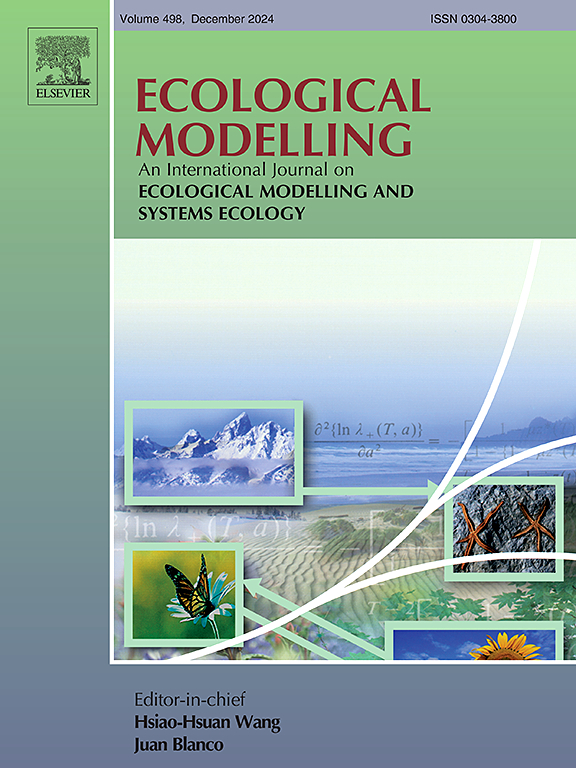论物种的生命:分类群循环的数学模型
IF 3.2
3区 环境科学与生态学
Q2 ECOLOGY
引用次数: 0
摘要
分类群循环假说为地理范围扩张、栖息地特化和最终范围缩小导致物种灭绝的周期阶段提供了一个概念框架。尽管具有重要的历史意义,但由于缺乏定量框架,分类群周期仍然是一个概念模型。本研究通过建立一个综合的数学模型来弥补这一差距,该模型将种群结构、适应、物种形成和生物地理范围机制整合在一起。该模型旨在提供一个易于使用,一致的框架,以跨分类群和生物地理尺度应用,作为一般分类群动态的零模型。本文章由计算机程序翻译,如有差异,请以英文原文为准。

On the life of species: Mathematically modelling the taxon cycle
The taxon cycle hypothesis provided a conceptual framework for the cyclical stages of geographic range expansion, habitat specialization, and eventual range contraction leading to species extinction. Despite its historical significance, the taxon cycle has remained a conceptual model due to the absence of a quantitative framework. This study bridges this gap by developing a comprehensive mathematical model that integrates population structure, adaptation, speciation, and biogeographical range mechanisms. This model is designed to offer an easy-to-use, consilient framework to be applied across taxa and biogeographical scales as a null model for general taxon dynamics.
求助全文
通过发布文献求助,成功后即可免费获取论文全文。
去求助
来源期刊

Ecological Modelling
环境科学-生态学
CiteScore
5.60
自引率
6.50%
发文量
259
审稿时长
69 days
期刊介绍:
The journal is concerned with the use of mathematical models and systems analysis for the description of ecological processes and for the sustainable management of resources. Human activity and well-being are dependent on and integrated with the functioning of ecosystems and the services they provide. We aim to understand these basic ecosystem functions using mathematical and conceptual modelling, systems analysis, thermodynamics, computer simulations, and ecological theory. This leads to a preference for process-based models embedded in theory with explicit causative agents as opposed to strictly statistical or correlative descriptions. These modelling methods can be applied to a wide spectrum of issues ranging from basic ecology to human ecology to socio-ecological systems. The journal welcomes research articles, short communications, review articles, letters to the editor, book reviews, and other communications. The journal also supports the activities of the [International Society of Ecological Modelling (ISEM)](http://www.isemna.org/).
 求助内容:
求助内容: 应助结果提醒方式:
应助结果提醒方式:


